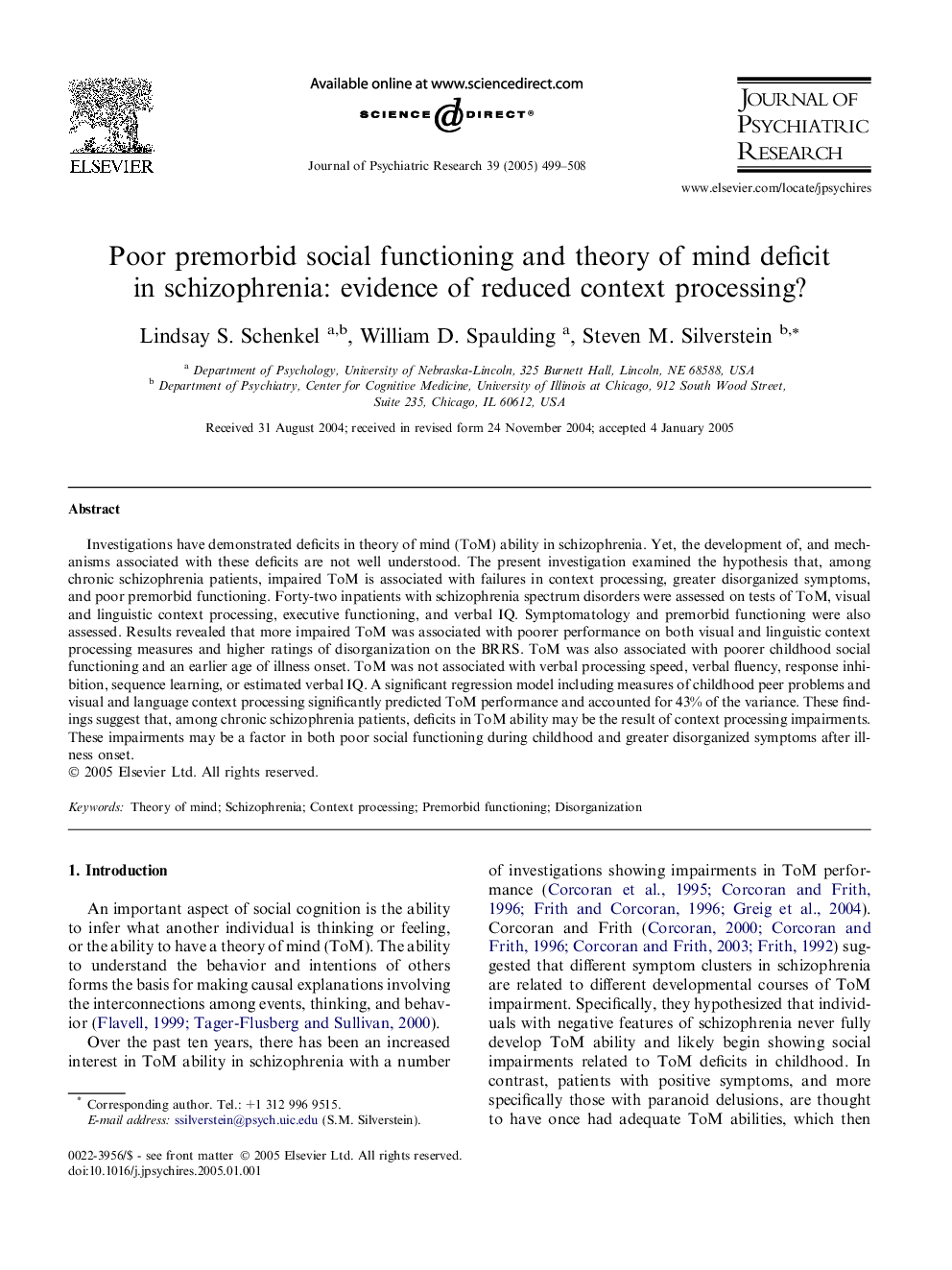| Article ID | Journal | Published Year | Pages | File Type |
|---|---|---|---|---|
| 10302341 | Journal of Psychiatric Research | 2005 | 10 Pages |
Abstract
Investigations have demonstrated deficits in theory of mind (ToM) ability in schizophrenia. Yet, the development of, and mechanisms associated with these deficits are not well understood. The present investigation examined the hypothesis that, among chronic schizophrenia patients, impaired ToM is associated with failures in context processing, greater disorganized symptoms, and poor premorbid functioning. Forty-two inpatients with schizophrenia spectrum disorders were assessed on tests of ToM, visual and linguistic context processing, executive functioning, and verbal IQ. Symptomatology and premorbid functioning were also assessed. Results revealed that more impaired ToM was associated with poorer performance on both visual and linguistic context processing measures and higher ratings of disorganization on the BRRS. ToM was also associated with poorer childhood social functioning and an earlier age of illness onset. ToM was not associated with verbal processing speed, verbal fluency, response inhibition, sequence learning, or estimated verbal IQ. A significant regression model including measures of childhood peer problems and visual and language context processing significantly predicted ToM performance and accounted for 43% of the variance. These findings suggest that, among chronic schizophrenia patients, deficits in ToM ability may be the result of context processing impairments. These impairments may be a factor in both poor social functioning during childhood and greater disorganized symptoms after illness onset.
Related Topics
Life Sciences
Neuroscience
Biological Psychiatry
Authors
Lindsay S. Schenkel, William D. Spaulding, Steven M. Silverstein,
